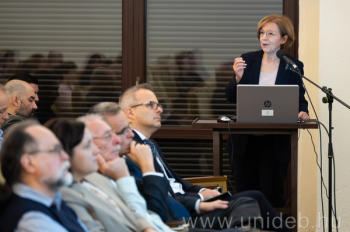
Overview of Biotechnology at the University of Debrecen
The University of Debrecen (UD) has positioned itself as a central hub for biotechnological research and education in Central Europe. In recent years, it has expanded its faculties to cover the full spectrum of biotechnology—spanning health, environmental, and industrial applications. This comprehensive approach allows UD to attract leading researchers, foster interdisciplinary collaboration, and maintain strong links with industry partners across the region.
Strategic Focus Across Red, Green, and White Biotechnology
UD’s strategic blueprint divides biotechnology into three core sectors:
- Red Biotechnology – focused on drug development, vaccine research, and cellular therapies.
- Green Biotechnology – emphasizing sustainable agriculture, biofuels, and waste‑to‑resource technologies.
- White Biotechnology – concerned with bioprocessing, industrial enzymes, and bioplastic production.
By integrating all three, the university creates a learning environment where students in biochemistry, molecular biology, and environmental engineering can collaborate on projects that have a real-world impact.
Insights from the 2025 International Symposium
Keynote: EU Regulatory Landscape and Advanced Therapeutics
María José Arce‑Tomás highlighted the evolving regulatory framework in the European Union, underscoring how new guidelines accelerate the path from laboratory to market for gene therapies and mRNA vaccines. Her presentation emphasized that universities must stay ahead of policy changes to maintain relevance in training and research.
Mycotoxin Research – Breaking New Ground
Antonio Moretti of the CNR‑ISPA Institute discussed biosynthetic pathways in mycotoxin-producing fungi, offering insights into how novel inhibitors can mitigate food safety risks. The research showcased at the symposium illustrated UD’s commitment to agricultural biotechnology that protects both farmers and consumers.
Industrial Microbiology – Glycosylation in Yeast
István Molnár demonstrated how a genetically engineered strain of *Saccharomyces cerevisiae* successfully glycosylates natural products, paving the way for cheaper and greener production of biologics. The demonstration highlighted the practical applications of synthetic biology within industrial processes.
Poster Sessions – A Focus on Emerging Topics
Beyond keynote presentations, UD held a poster session that showcased projects ranging from biogas optimization to the development of bio‑based packaging materials. These sessions provide early‑career researchers with an invaluable platform to receive feedback and form collaborations.
Industry Collaborations and Research Opportunities
UD’s research groups work closely with regional companies, such as food producers, renewable energy firms, and pharmaceutical manufacturers. Example partnerships include:
- Co‑development of plant‑based probiotics with a local dairy cooperative.
- Joint funding projects on next‑generation **biomaterials** that support zero‑waste manufacturing.
- Collaborations on **bioreactor scale‑up** with a multinational chemical supplier.
These alliances enable students and post‑docs to secure internships, co‑author publications, and gain insights into commercial viability.
How to Engage with University of Debrecen’s Biotechnology Programs
If you’re an aspiring scientist, industry engineer, or policy analyst interested in biotechnology, UD offers a range of pathways to integrate into its community:
- Undergraduate programs in Life Sciences and Biotechnology provide a strong foundation in molecular techniques and data analysis.
- Graduate degrees (MSc and Ph.D.) allow specialization in areas such as pharmaceutical development, agribiotechnology, or industrial microbial processes.
- Continuing education courses and short certifications cover emergent topics like CRISPR therapeutics and sustainable fermentation.
- Research internships let participants assist faculty projects and contribute to international publications.
- Participation in symposiums is open to both faculty and industry professionals; registration details can be found on the university’s events page.
Practical Steps to Get Started
1. Review the curriculum on the official UD website and identify courses that match your interests. 2. Contact departmental liaisons to discuss admission requirements and available research projects. 3. Attend the next symposium or workshop—these events often feature networking sessions where you can meet potential mentors or project partners.
Take Action: The Next Steps for Your Biotechnology Journey
Whether you’re new to the field or looking to deepen your expertise, the University of Debrecen offers a world‑class platform for development and innovation. By engaging with its programs now, you can contribute to solutions that impact healthcare, food security, and industrial sustainability.
Explore UD’s Biotechnology programs today and discover how the university’s multidisciplinary approach can shape your career.
For tailored guidance, contact our admissions office today. They will walk you through application procedures, financial aid options, and connections to industry partners.
Want to see ongoing research in detail? Download conference proceedings to review cutting‑edge findings and target opportunities for collaboration.
Stay ahead of industry trends by joining UD’s network. Subscribe to our newsletter for updates on research breakthroughs, faculty hiring, and upcoming events.
Finally, consider attending the next international symposium. Register now and network with global experts—your participation could drive the next wave of biotechnological innovation.

